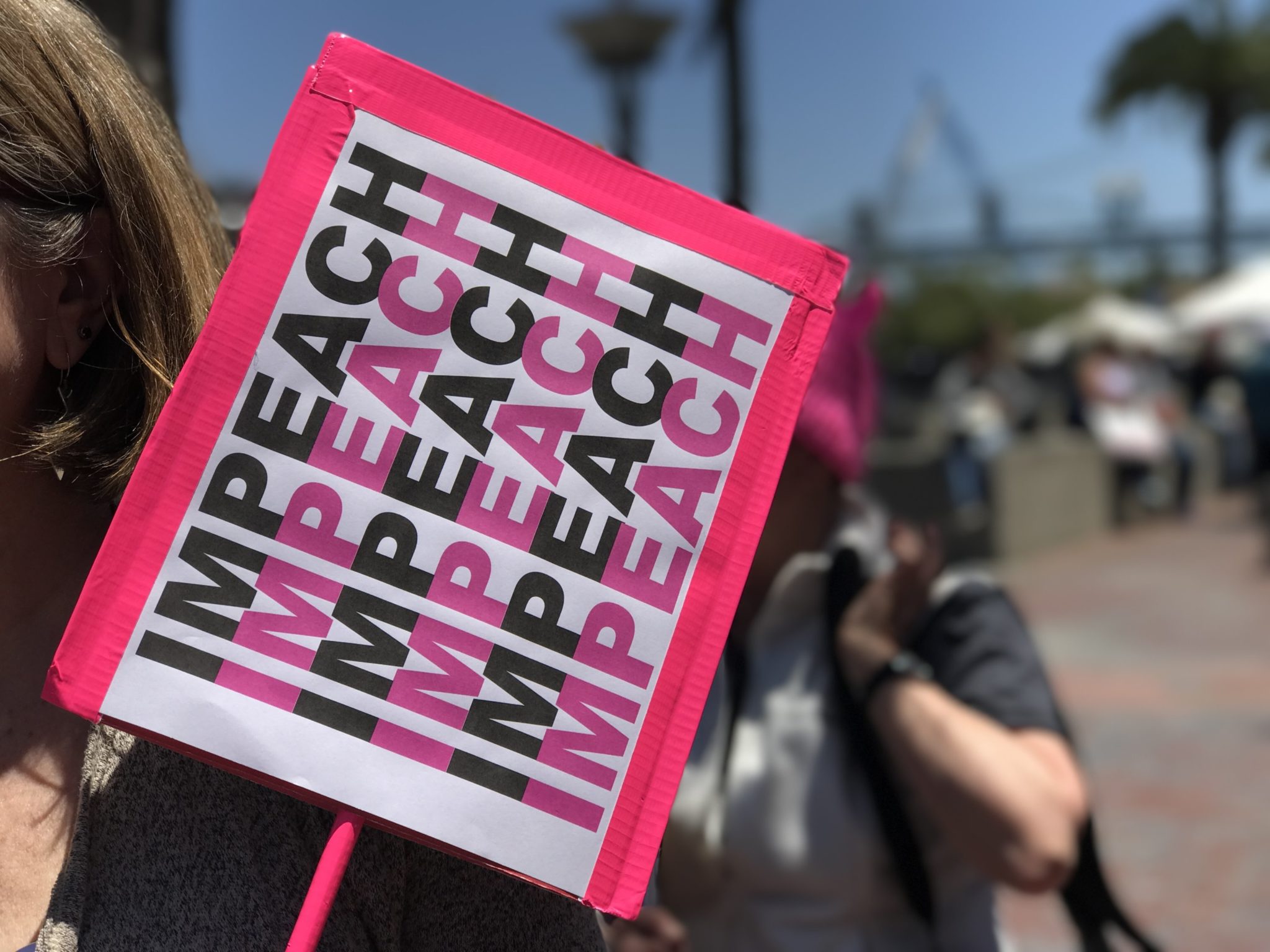For the proliferation of stodgy legal analysis, Trump’s impeachment has been a boondoggle. But this week, out of the lawyerly bog has appeared one of the most intriguing legal papers on impeachment so far, published on the website Just Security. In about 19,000 words, the paper’s authors—a clutch of legal scholars, lawyers, and former prosecutors—argue that the events surrounding the Ukraine scandal probably violated six federal criminal statutes (plus a seventh, non-criminal one). They range from the Hatch Act to campaign-finance law and the Foreign Corrupt Practices Act.
In the paper’s introduction, Andrew Weissmann, once the top deputy in the Mueller probe, reminds us that a sitting President doesn’t need to commit a crime in order to stand guilty of high crimes and misdemeanors. But if there were criminal violations in the Ukraine scandal, the implications would be significant. As Weissmann writes (with emphasis added):
The documents from the State Department, the OMB, Giuliani’s phone, and the like could be the subject of criminal federal grand jury subpoenas — to be issued or in fact already issued. There is nothing that would prevent the SDNY, for instance, from legally seeking such documents.
According to Weissmann, a grand jury could pick up the torch where Congress has been stymied—such as its failed efforts to secure State Department and OMB documents that the Trump administration has refused to turn over to the House. The same is the case for individuals who have thus far refused to give testimony, Weissmann adds, such as Mick Mulvaney or Mike Pompeo: “[A] federal grand jury could seek the testimony of those…who have resisted House testimony.”
In this scenario, prosecutors could begin issuing subpoenas to key players in the Ukraine saga even as the 2020 election unfolds, and the Senate’s impeachment trial fades into the country’s rearview mirror. In fact, Weissmann hints, it could even be happening right now.
One of the paper’s authors, Barbara McQuade, a former federal prosecutor who now teaches at University of Michigan Law School, believes that several people in the Trump administration may have committed “honest services fraud,” a category of fraud that prosecutors often reserve for corrupt civil servants. “Yes, a grand jury could investigate right now,” McQuade told me. “I think they could be most certainly investigating co-conspirators, and even charge those co-conspirators.”
Exactly who might rise to the level of a co-conspirator would depend, McQuade continued, on what evidence a grand jury uncovered. “Certainly Rudy Giuliani is potentially a co-conspirator. Perhaps Lev Parnas and Igor Fruman,” she said. Subpoenaed material or testimony could implicate White House officials in honest services fraud, too—“people helping facilitate the scheme, arranging meetings, communicating messages, working out the language of what the announcement would look like,” McQuade said. “I think it’s worth exploring—at least Mulvaney—to what extent was he involved. And possibly [Rick] Perry, possibly Pompeo, possibly [Gordon] Sondland. Possibly even [Kurt] Volker, I suppose.”
And, of course, a certain individual at the heart of the scandal. “Even if they can’t charge the President until he leaves office,” says McQuade, “he could be charged at the conclusion of his term in January, 2021.”
She added that prosecutors who bring charges in the wake of Congressional findings would be working within rich precedent: the Iran-Contra scandal, in which events during Congressional hearings led to the prosecution of Oliver North, and Watergate, in which prosecutions were brought against conspirators during and even well after Richard Nixon resigned from office.
It’s hard to imagine precisely what effect a grand jury investigation would have on the 2020 presidential election. But presumably, it would draw out the scandal in much the same way the Mueller probe did, with the country’s attention heaped on still shots of the front doors of federal courthouses, and those who were being subpoenaed to testify. And it would suggest that even with a speedy exoneration of President Trump in the Senate, there is a scenario in which he can’t escape the looming cloud of Ukraine as the November election nears.
“We are surely to learn more about the criminality underlying the impeachment inquiry,” Weissmann continues in the paper’s introduction, evidence that is “sure to be damning.”
“The upshot,” he concludes, “is that this is likely not to be the last we have heard about the President’s conduct, no matter what the result in the Senate trial.”

















